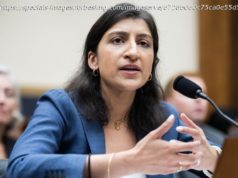Array
somewhere in the world, the first cries of a newborn baby will signify a milestone for humanity: The arrival of world’s 8 billionth resident.
The United Nations is celebrating today (Nov. 15) as the „Day of 8 Billion“ – the date the world’s population is projected to reach 8 billion people.
There’s no way to know exactly which baby puts the population over this mark. But she or he will likely be born in the Global South. The U.N. says much of the population growth expected between now and 2050 is coming from just eight countries – and half of them are in sub-Saharan Africa.
Other countries in this group of eight are in Asia. India, with nearly 1.4 billion people, is forecast next year to overtake China as the world’s most populous country, according to the U.N. But its population growth is actually slowing, due to declining birthrates linked to massive migration to urban areas.
The U.N. says today’s milestone is a celebration of human longevity due to improvements in public health and medicine. But it also comes with warnings about economic inequality and sustainability: Demographers say countries with the highest fertility tend to have the lowest income per capita. And slower population growth could help mitigate environmental damage.
NPR spoke about the Day of 8 Billion with Andrea Wojnar, India representative for the United Nations Population Fund (UNFPA), who is based in New Delhi. This interview has been edited for length and clarity.
What’s the significance of the 8 billion mark? What’s the purpose of this U.N. campaign?
The story behind the world’s eight billion population today is really a story of triumph. The number of human beings is more than ever, due to increasing life expectancy but also declining infant and maternal mortality.
So for us, that’s a mark of progress in medicine and health systems. It shows improvement in education and overall development.
This is a landmark in human survival. We think in today’s world, despite the challenges, a higher share of people than ever before are educated and are living healthier lives than in any previous point in history. Behind all these numbers, we see the potential of human beings as resources and solutions – and not as a cause for alarm.
Where is the global population growing most quickly?
The global population is growing most here in India. In overall numbers, India is set to [next year] become the country with the highest population.






